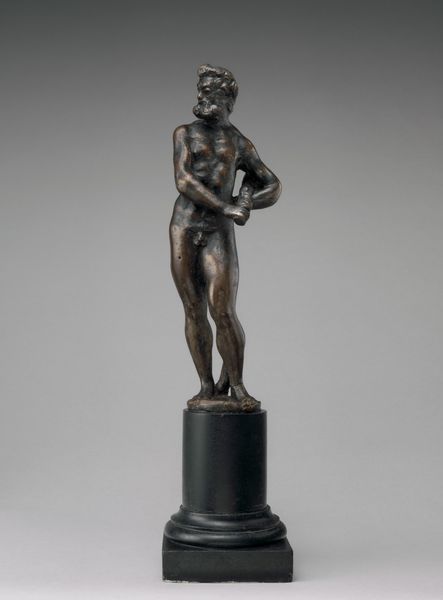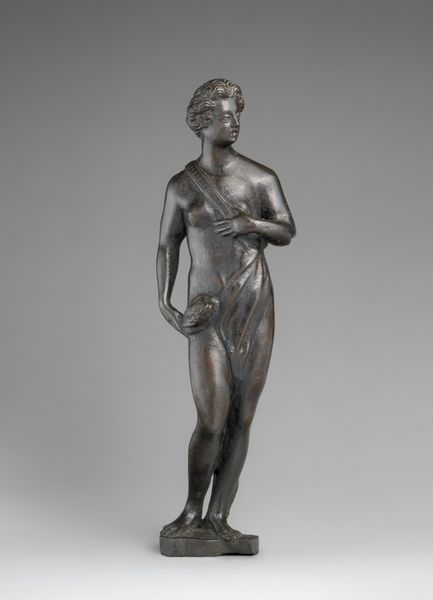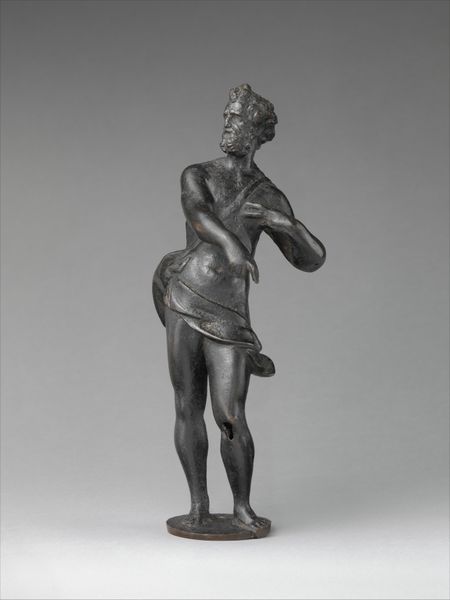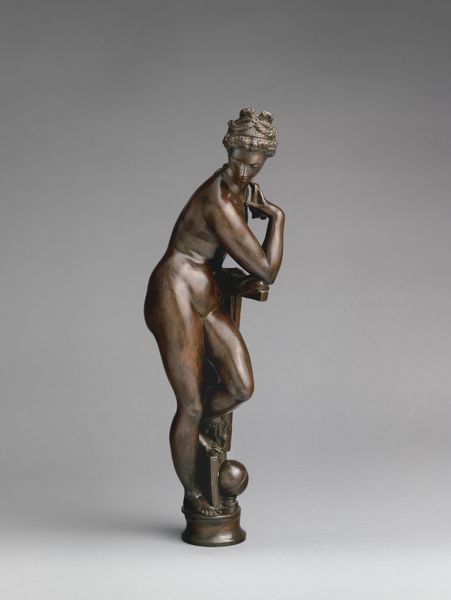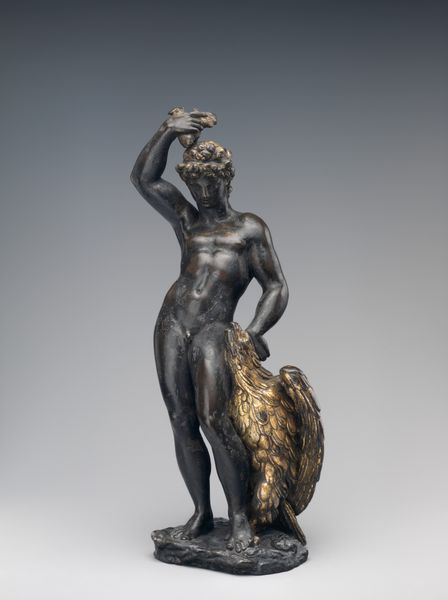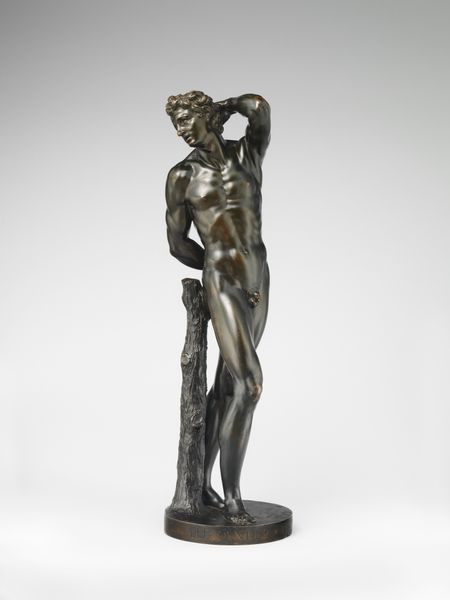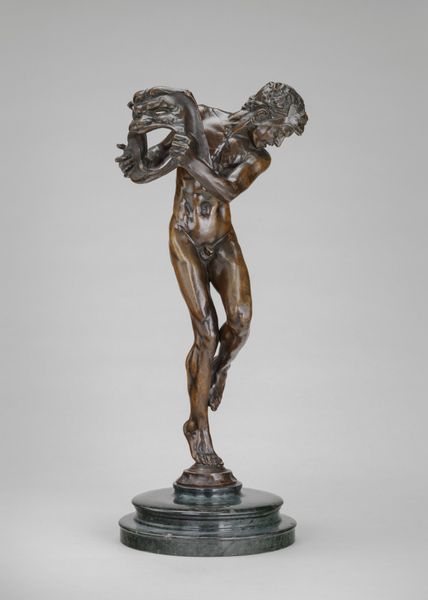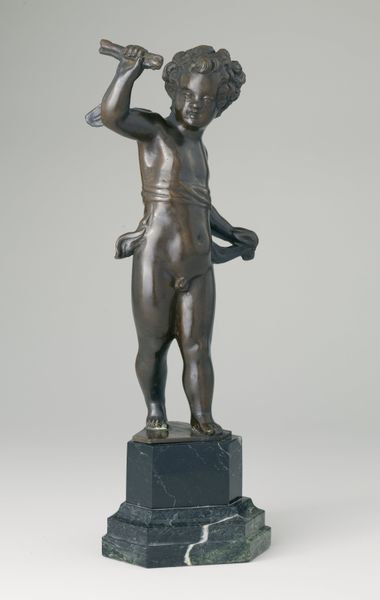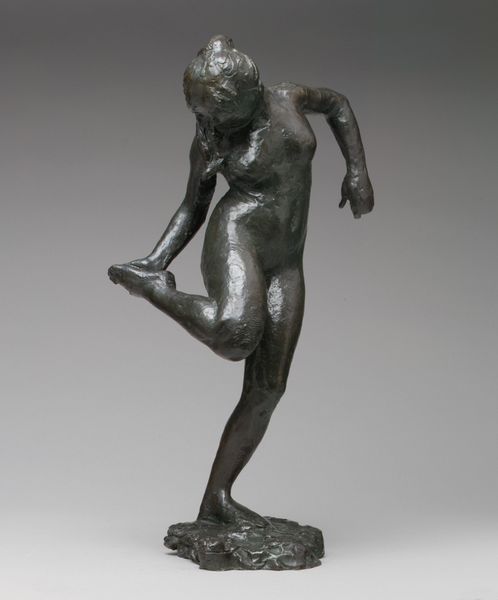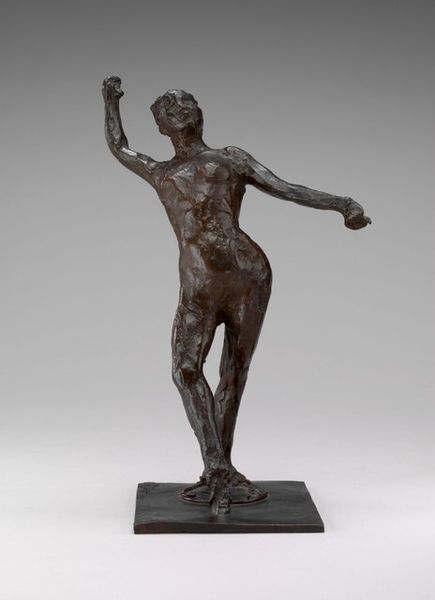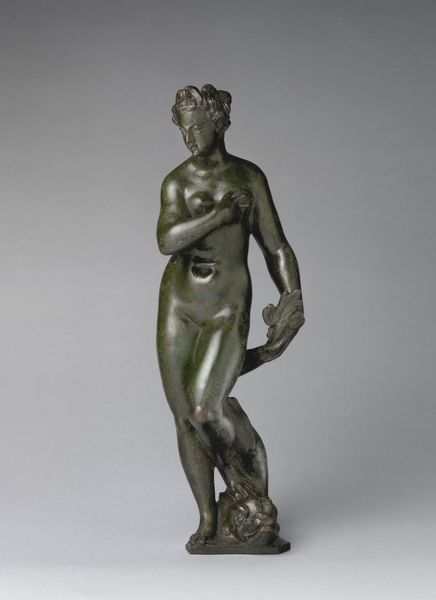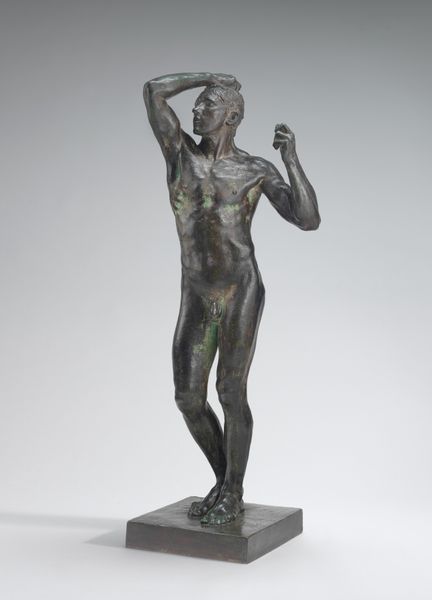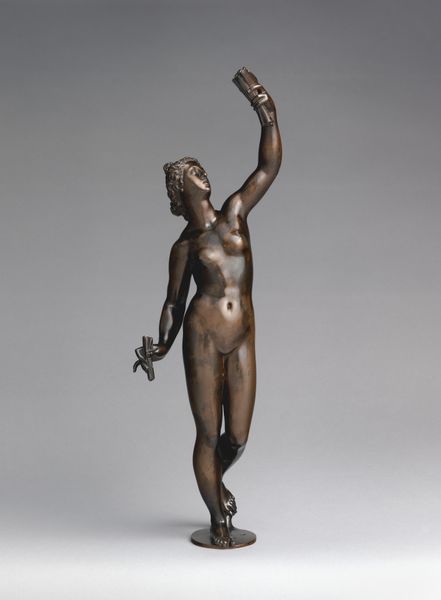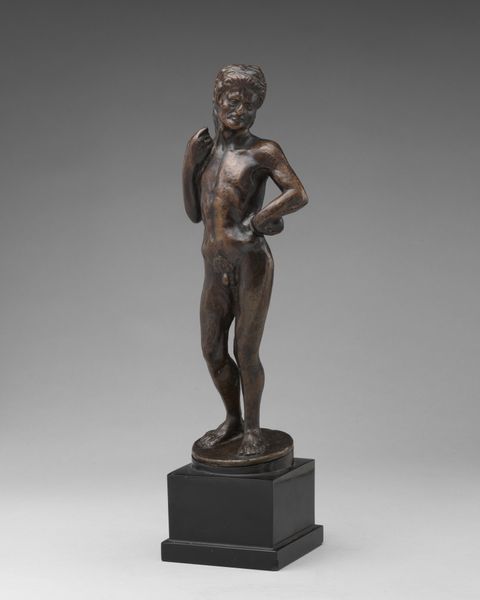
bronze, sculpture
#
portrait
#
medieval
#
sculpture
#
bronze
#
figuration
#
sculpture
#
history-painting
Dimensions: Overall (confirmed): 13 1/4 × 4 1/8 × 5 1/4 in. (33.7 × 10.5 × 13.3 cm)
Copyright: Public Domain
Tiziano Aspetti made this bronze figure of Apollo with his lyre in Venice, sometime around the turn of the 17th century. Bronze is a material with a very long history. Aspetti would have started by making a model, probably in wax, and then encased it in clay to create a mold. Molten bronze was poured in, and then the mold broken away to reveal the figure. The artist then refined the surface, adding details with chisels and engraving tools. Bronze’s inherent qualities – its metallic sheen, its weight, its capacity to hold incredibly fine detail – all contribute to the sculpture's overall effect. But we should also consider the social context of the bronze itself. Extracting and smelting the ore, and casting the metal, were all labor-intensive processes. When you look at this sculpture, then, you're not just seeing a mythological figure, but also the result of a complex network of labor and skill. Thinking about materials, making, and context helps us understand the full meaning of the sculpture, beyond traditional ideas of fine art.
Comments
No comments
Be the first to comment and join the conversation on the ultimate creative platform.
